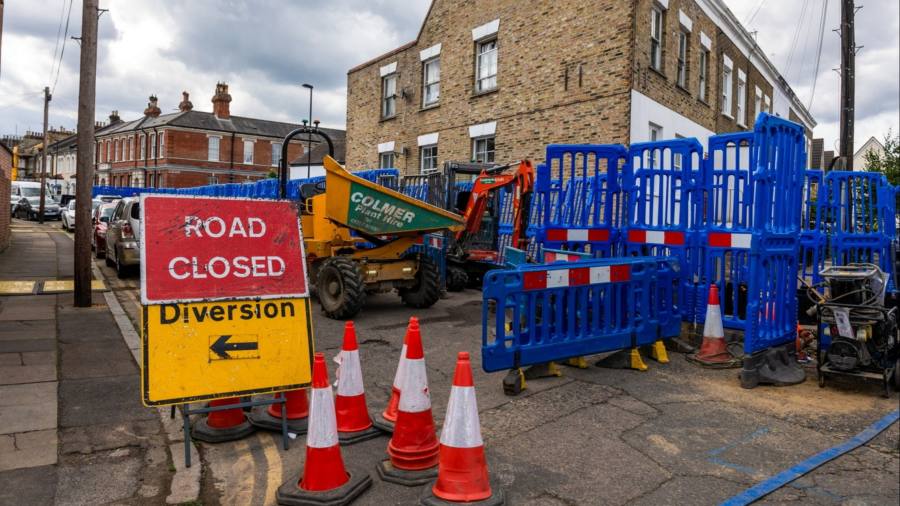
Receive free UK infrastructure updates
We’ll send you a myFT Daily Digest email rounding up the latest UK infrastructure news every morning.
The British water company that let the taps run dry for thousands of households this summer paid more in dividends and interest payments over two years than it put into the company’s ailing infrastructure, according to University of Greenwich research.
South East Water, which serves 2.2mn customers across Kent, Sussex, Surrey and Berkshire, distributed £156mn in dividends over the two years to March 2022, according to its most recent accounts. It also paid £72.8mn in interest to service its £1.4bn debt over the same period.
The interest and dividends total £232mn and surpass the £179.8mn in capital expenditure spent on infrastructure between 2020 and 2022, including replacing leaky pipes and providing adequate capacity in water tanks and reservoirs.
South East Water said that of the £156mn in dividends, £136mn was a regulator-approved “special dividend” in 2020 used as an internal loan repayment between the water company and its parent group. The remainder was used to pay interest on debt in other companies in the group.
The utility has suffered a number of recent failures. More than 6,000 households were left without running water for up to a week in June, while 286,000 households were in the same predicament before Christmas. Another interruption to supplies, which included discoloured water last February, culminated in a £3.2mn fine from the regulator, Ofwat.
David Hall, visiting professor at Greenwich University who undertook the research into the water company’s accounts, said the potential for water shortages in south-east England had been “known about for a long time but had not been dealt with due to bad planning, a failure to cut leakage and a decision to divert money towards dividends rather than investing in infrastructure”.
His findings come amid a growing public furore over the privatised water industry, which paid £72bn in dividends between 1989 and 2021, according to research by the Financial Times. At the same time, the industry notched up £60bn in debt while a failure to invest sufficiently in infrastructure has led to a fifth of treated water being lost in leakage as well as unknown quantities of sewage pouring into coastal waters, lakes and rivers.
Concerns are also growing for the overall financial health of the water industry, underscored by Thames Water, the UK’s largest water and sewage provider, which is struggling under a £16bn debt pile. The government is drawing up contingency plans for a temporary nationalisation of the company. The financial stability of other water companies, including South East Water, is also under increased scrutiny from Ofwat.
South East Water said: “No dividends have been paid by the ultimate holding company HDF (UK) Holdings Limited to external shareholders since March 2019 and it does not expect to pay a dividend this year or next”.
However, a 2022 Ofwat report on water company resilience determined that South East Water did pay a dividend and “provided narrative on the considerations around the decision”.
The company has £1.4bn of borrowings and the second highest regulatory gearing — the debt a company has as a proportion of its regulatory capital base- at 74.8 per cent — below Thames Water’s 80 per cent, according to Ofwat.
David Black, chief executive of Ofwat, has summoned David Hinton, the chief executive of South East Water, to a meeting and demanded “transformative change”. “Providing reliable supplies of safe drinking water is a fundamental legal obligation of all water companies,” he said in a letter to the company in the wake of last month’s water shortages.
South East Water said: “Leakage on our network is currently around 18 per cent, which is lower than the industry average.”
It added: “The company is currently prioritising projects across its system to increase the amount of water that we can supply.”
The company said at the time of the outages that problems stemmed from higher demand than usual, which meant it ran low on treated water in its storage tanks. It sparked a public outcry by attributing the outages to hot weather, prolonged dry spells and increased demand owing to the rise in people working from home.
South East Water added that in the past five years it had “invested nearly half a billion pounds in the network to improve our services to customers”. It is planning to ask Ofwat to be able to raise customer bills. “We plan to increase this considerably in the next five years,” it said.